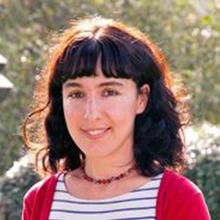Unaccompanied minors in America – a human rights crisis

Every year thousands of people flee conflict and persecution from the Northern Triangle countries, namely El Salvador, Guatemala and Honduras, and arrive in the US seeking protection and safety.
However, upon arrival they often face more legal, social and administrative challenges that leave them living in limbo for an indefinite period of time, in very poor conditions.
Dr Ingi Iusmen, Associate Professor in Governance and Policy within Politics and International Relations at the University of Southampton, is working alongside Professor Jacqueline Bhabha of Harvard University, one of the world’s leading child refugee experts, to assess the extent to which the child rights of unaccompanied migrant children in the US are protected as part of the immigration process.
The family separation policy adopted by the Trump administration was officially implemented between April 2018 and June 2018, but actually carried out until October 2019. In practice, this policy meant that children were separated from their parents at the Southern border, making them unaccompanied minors, and then placed in detention centers while the parents were placed in federal adult jails. This highly controversial policy was sold to the American public as the ‘zero tolerance’ approach to illegal immigration embraced by the Trump administration and it aimed to deter immigration from Mexico and the Northern Triangle.
Many children, as young as three and four, were being taken from their parents and placed to live in detention centres at the border, waiting to hear whether they will be granted asylum or sent back to their countries of origin. The living conditions in these detention facilities are very poor, sometimes with only one meal a day, with almost no access to healthcare and psychological support.
Dr Iusmen’s research is assessing the legal challenges which unaccompanied migrant children encounter, how the immigration/asylum decisions are made and whether they are consistent with children’s rights principles, as enshrined in the UN Convention on the Rights of the Child. Additionally, this research also looked at the extent to which children are able to manage and cope with the situations they are living in and what services help them through it.
Focusing on the state of Massachusetts, Dr Iusmen has interviewed key professionals working with child migrants, such as pro bono lawyers, judges, NGOs, social workers, health and mental health experts, who all work with children waiting to hear about their fate. She has also spoken with unaccompanied minors who have been waiting so long, they are now adults.
Dr Iusmen’s research shows an immigration system that has been changed to target vulnerable immigrants, which include children, at the Southern border, through the family separation policy and more recently the Remain in Mexico measure (officially known as the Migration Protection Protocol) which are aimed at deterring immigration from South America. New legislation has made it more difficult for children to qualify for asylum and the implementation of the policy has also changed to allow civil servants to use their discretion to block children from getting asylum.
She said: “I was surprised by how much the system has been amended in a way that would harm this vulnerable group. Sometimes when policies are implemented there is room for maneuver because they are vague and abstract, but here it wasn’t just an implementation accident. They are targeting these vulnerable groups from the top level going down the chain of command to the immigration officers in charge of border protection. It’s deliberate, inhumane treatment of vulnerable people.”
Despite the situation however, there are people fighting for the rights of unaccompanied children.
Dr Iusmen explained: “The pro bono lawyers put their heart and soul into helping these children. In the U.S they do not provide asylum seekers with legal representation, so these children are relying on the support and help of pro-bono lawyers. Most of them speak Spanish which is helpful and use their own knowledge to exploit the gaps in the law in order to benefit these children. These lawyers, usually provided by charities, do an amazing job helping children navigate a legal system that’s set up against them. The children know very little English and it can take forever for their case to be heard.”
Dr Iusmen is a recipient of the Fulbright-Schuman Award. This prestigious and competitive international award is funded by both the US State Department and the European Commission and allows EU scholars to conduct research at prestigious American universities. Dr Iusmen spent seven months at Harvard University until the coronavirus pandemic meant she had to come back to the UK.
Dr Iusmen is assessing her findings and writing recommendations for how to improve the system, however, she says what is needed is a radical overhaul of the entire system.
“Children and children’s rights need to be at the heart of US immigration and asylum policy and child migrants should be treated first and foremost as children rather than as migrants,” she said. “For the system to change, the current administration and its anti-immigration rhetoric should change. We want to provide robust, scientific, objective evidence that shows the extent of the situation and be able to offer sustainable resolutions to this human rights crisis that will benefit children, we owe it to them.”
